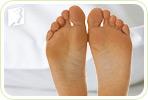Night sweats can affect all people: young and old, male and female, though they tend to be most prevalent in women during the menopausal stage.
Night sweats often raise stress levels and cause fatigue during the day, increasing the likelihood of night sweats in the future.
Keep reading to find more about night sweats.
What Are Night Sweats?

Night sweats are episodes of abrupt and severe sweating while sleeping, which often cause women to wake up in the middle of the night, cold and clammy. In more severe cases, getting back to sleep after a night sweat episode can become difficult, causing a disruption in healthy sleep patterns and in mood and energy levels the next morning.
What Causes Night Sweats?
Night sweats can occur for many reasons. Hormonal imbalance, stress, fatigue, alcohol, and caffeine all have negative effects on the body, and can easily impact sleep patterns.
These factors can provoke night sweats:

- Hormonal imbalance. Changes in estrogen levels can affect the hypothalamus and its ability to regulate body temperature.
- Infections. Inflammation, tonsillitis, diverticulitis, and tuberculosis can all cause night sweats.
- Medical conditions. Diabetes, low blood pressure, thyroid disorders, and certain types of cancer can cause night sweats.
- Medications. Treatments such as a hormone balancing program may cause night sweats. These episodes are also a side effect of various prescribed medications.
Women experience night sweats more often than men as a result of fluctuating hormones during menopause. During this period, a woman's body experiences decreased hormone levels. Hormone production usually returns to normal levels once a woman enters postmenopause.
Treatments for Night Sweats
Although in some cases they may be linked to thyroid disorders or other rare conditions, the main cause of night sweats in middle-aged women is the hormonal fluctuations during menopause. There are several options available that may be effective in alleviating the symptoms of night sweats.
Hormone replacement therapy (HRT) was popular for many years, and it is an effective treatment for night sweats in severe cases. However, HRT has decreased its popularity in recent years due to possible links with more serious health conditions like certain types of cancer.
On the other hand, alternative medicines have been considered an effective treatment to alleviate night sweats and many other menopausal symptoms. Herbal teas, massage, acupuncture, and some natural supplements (e.g., phytoestrogenic and hormone-regulating) may all be used as treatments for night sweats.
Sources
- Boston Women's Health Collective. "Hot Flashes, Night Sweats and Sleep Disturbances". Our Bodies, Ourselves, 2006.
- The National Institute of Health. (n.d)."Signs of the Menopausal Transition".Retrieved from www.nih.gov
- Von Muhlen, DG, et al. "A community-based study of menopause symptoms and estrogen replacement in older women". Maturitas. Sept 1995; 22(2):71-8.



